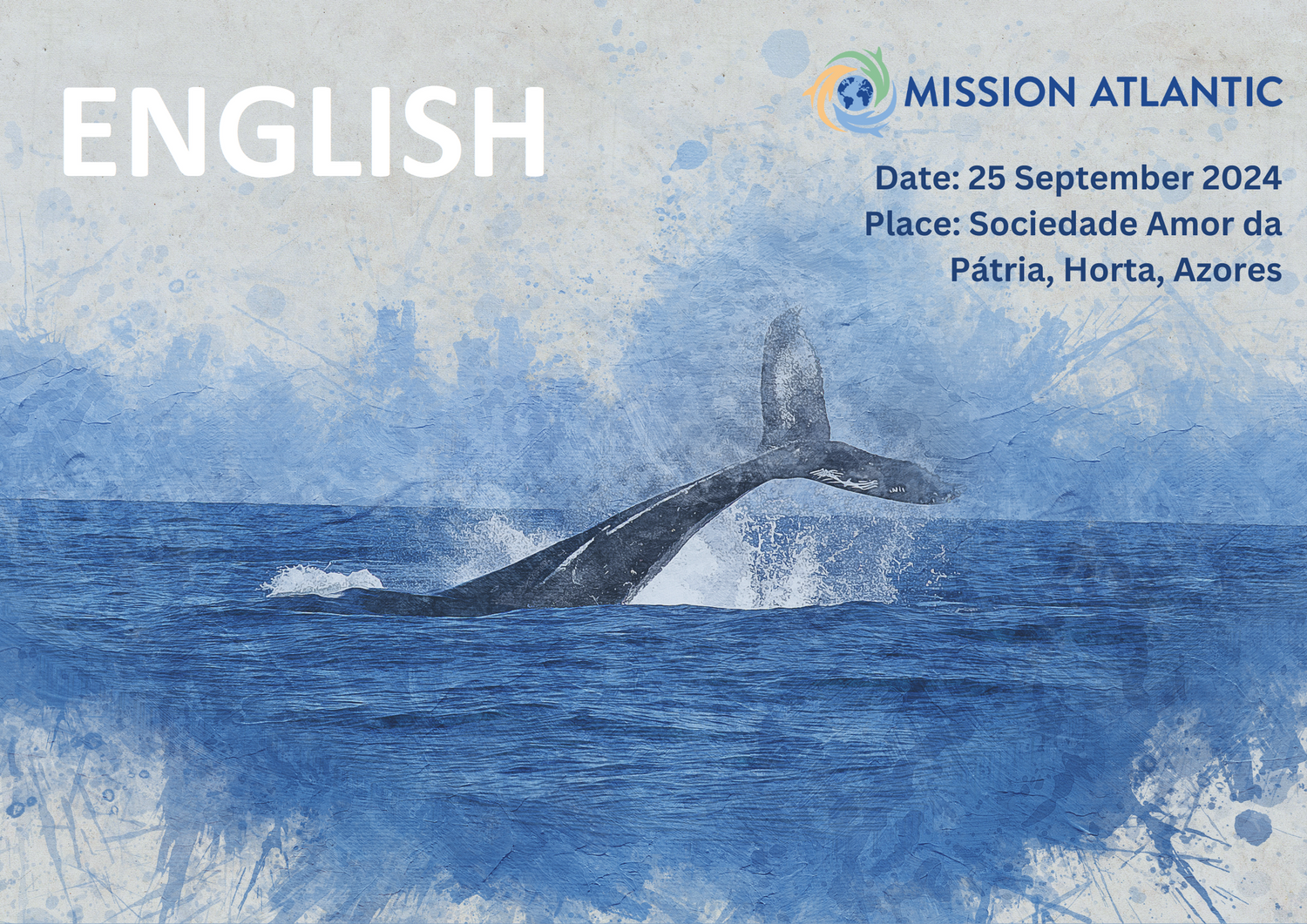Inês Gomes, OKEANOS
Read the original article in Portuguese here.
On September 25th, an international event took place at Sociedade Amor da Pátria, in Horta, Faial Island. This event, "Ecosystem-Based Management and Resilience of Coastal Socio-Ecological Systems: The Role of Marine Megafauna", took place as part of the European Project MISSION ATLANTIC’s annual meeting.
Organized by IMAR/OKEANOS of the University of the Azores, the event aimed to highlight and discuss the management and conservation challenges of marine megafauna in the Atlantic. These iconic ocean species (whales, dolphins, sharks, tuna, turtles, birds) are seriously threatened by human activities, habitat degradation and climate change. Therefore, the development of innovative and integrated approaches to scientific decision-making is now more necessary than ever.
The discussions addressed the challenges of shared management of marine megafauna at local (Azores), regional (Macaronesia) and transatlantic (North-South) scales, and research priorities and opportunities for international collaboration. These discussions aim to support strategic policies under the All-Atlantic Ocean Research and Innovation Alliance (AAORIA), a science diplomacy effort involving countries on both sides of the Atlantic Ocean.
A number of excellent speakers took part in the event, including 10 regional speakers, 5 from other regions of Macaronesia and 7 international speakers. For the full list of speakers, view our agenda.
Key messages highlighted during the event include:
- The need to fill gaps in knowledge regarding the ecology of marine megafauna. For highly migratory species, high spatiotemporal variability directly affects the effectiveness of fixed Marine Protected Areas (MPAs). A dynamic management approach has proven highly effective in conserving these species;
- The influence and integration of local scientific knowledge into sustainable management practices. The science and knowledge acquired by sea users in the Azores is essential for informing the 2030 EU Biodiversity Strategy, which aims to protect 30% of the world’s oceans and also supports the MPA design process;
- The transparency of policymakers is essential. The results of Marine Protected Areas, both in terms of biodiversity and socio-economic impact, must be made publicly available to ensure trust and compliance;
- The creation of a group with a “Macaronesian Mission” is essential, establishing a common research strategy that identifies shared problems and defines priorities on an appropriate scale.
The event agenda can be viewed here and you can watch the full webinar here.
Photos
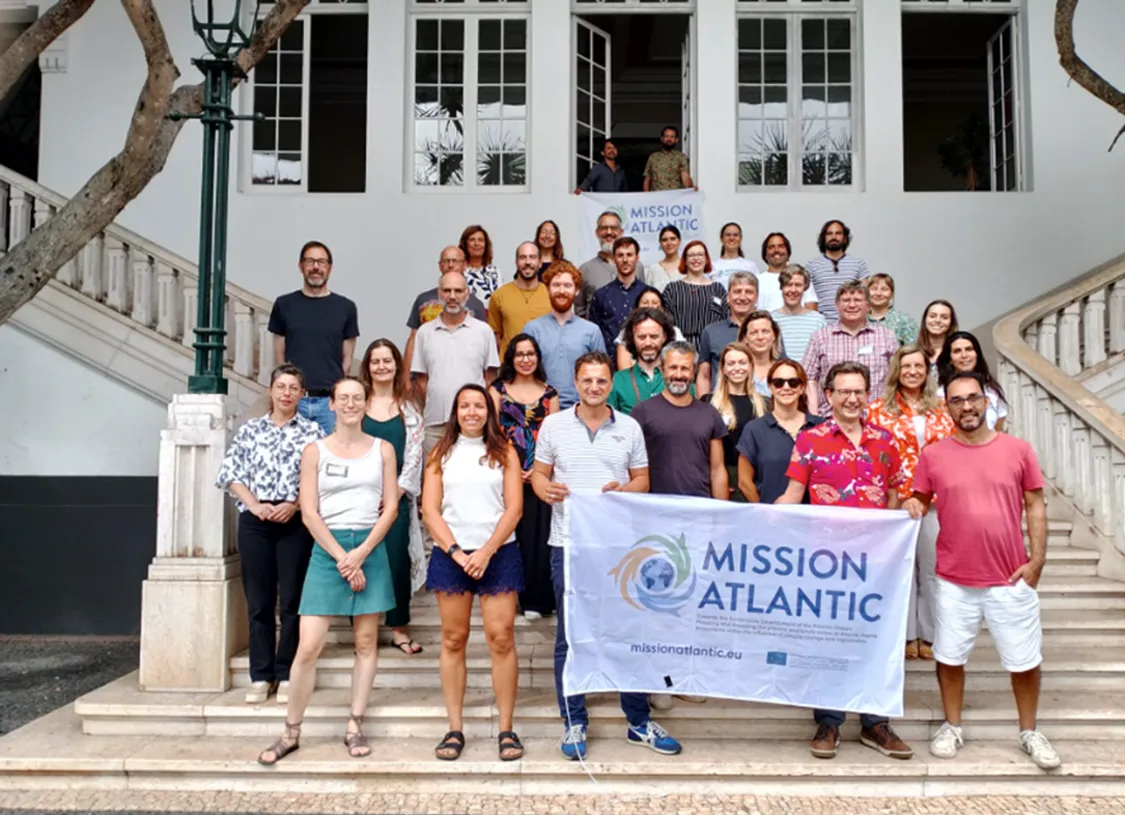
Mission Atlantic Project’s Annual Meeting
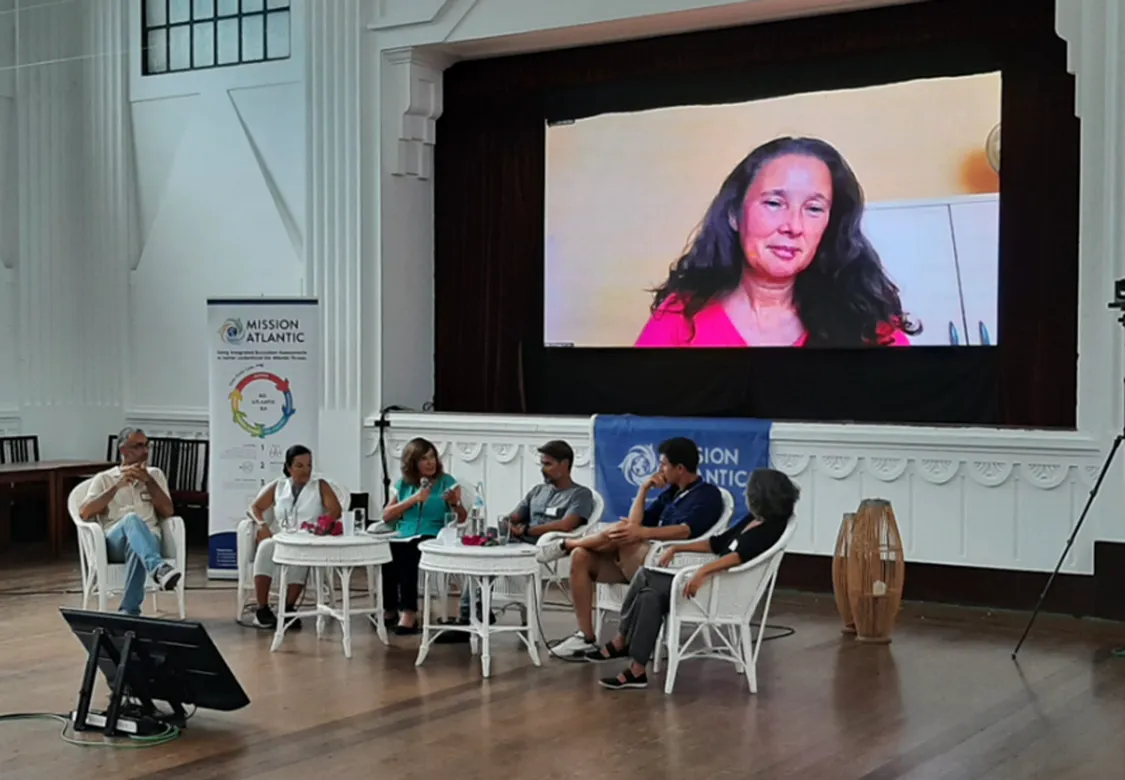
Macaronesia Round Table Discussion
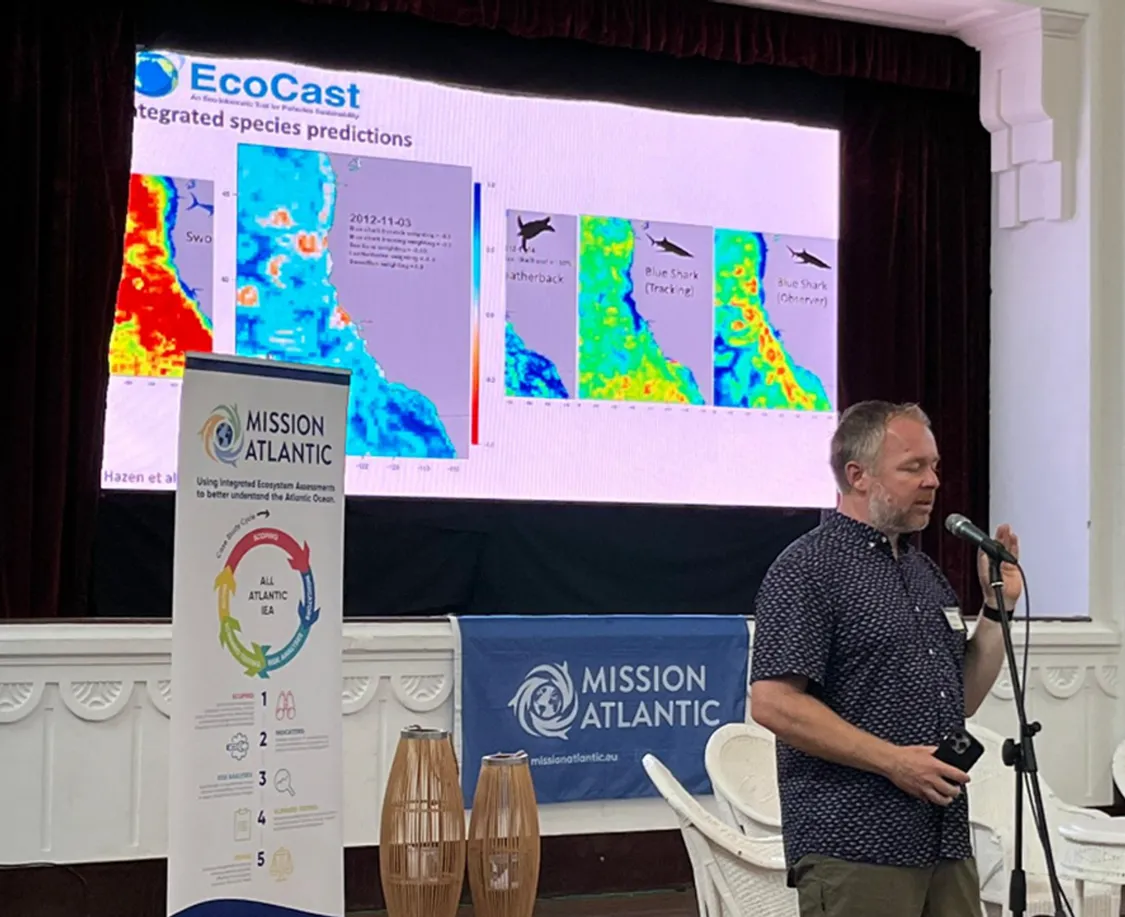
Elliot Hazen (University of Santa Cruz, California, USA) presenting on Dynamic Ocean Management
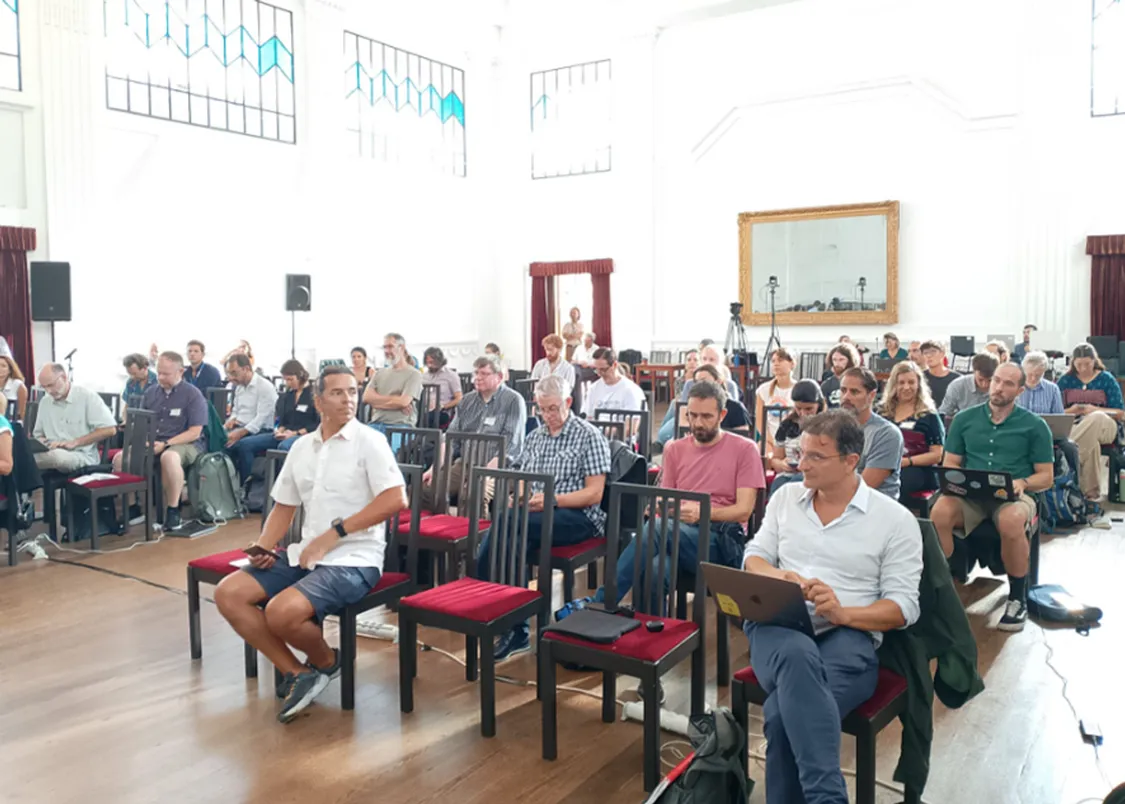
Attendees at Amor da Pátria
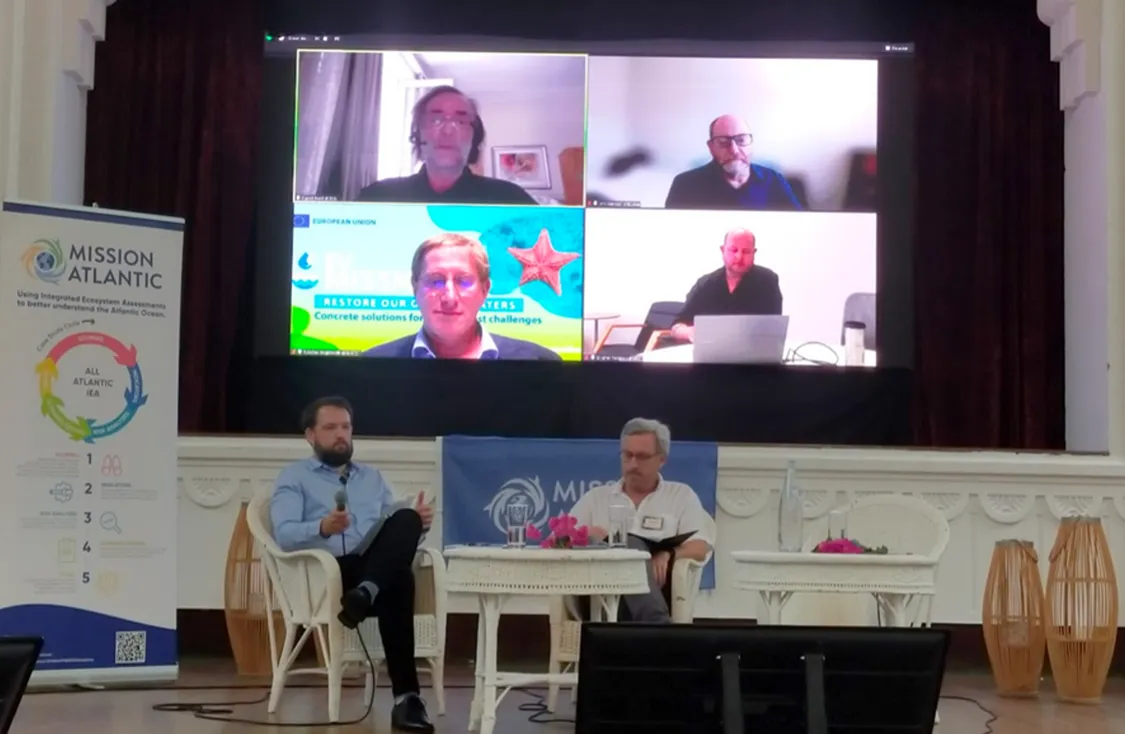
International panel discussion featuring Okeanos, ICES, NOOA, the European Commission’s Directorate General for Research and Innovation, and the Technical University of Denmark
